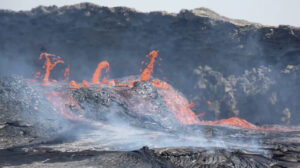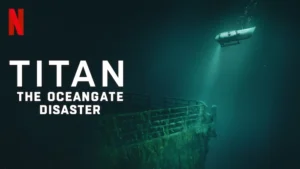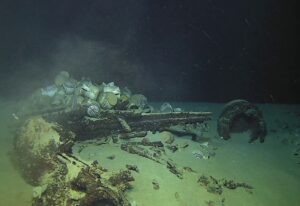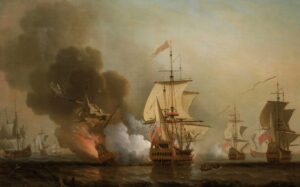Nurshat Jumadilova is one of the most interesting, intelligent and brave people I have ever come across. Meeting her definitely changed my life for the better.
And, this is important to know, she has both a personal and professional perspective of the reality as regards to Stalins penal labor camps, GULAG. She has personal experience of the Soviet era living in it and when it comes to the penal camps, she has intimite knowledge through her family and she have studied its archives and listened to survivors stories. The reason I poimt this fact out is due to the fact when you read the books and research done up until today by people who have no personal connection to the time and place, like most Wetsern researchers, no matter how fair their research is, they do not have the personal connection and for this reason, they can never give a complete picture of this historical era. It is impossible. And most of the research I did before the journey, an extensive work going back to early 2000, it has been either very negative reading or the other way around. Seldom something in between which is pobably more close to the real truth. And, after many visits to Russia, which I love, and to some of the former republics of the Soviet Union, I have come across many, many people who badly miss the days of the former empire. And, of course, some who hated every second of this time, but they are surprisingly very few and most not living in Russia today. But, almost without exception, all of them where not academics and researchers themselves and therefore, as I see it, didn´t have the capacity to put this historical time in its right context. It was just personal opinions. So, for this reason, I was more curious than ever to hear what Nurshat had to say about it all.
This interview with her took place just after we had finished talking to her mother, on our way to Spassk, a subdivision of the infamous camp of death, Steplag, made famous by Alexander Dolgun´s book An American in the Gulag. I asked her about her personal and professional thoughts on those who survived and why.
“What could we do, at that time there was such policy” , she started and continued: “I think all these people survived only because of their relatives, children and husbands who made them belive that they could be freed. This gave them patience and a purpose. The love of life and the love of their family. But, of course they suffered a lot, but God gave them strength.”
How was life for most people during the Soviet time? I asked her.
“In my opinion there was a good and bad side to it, but in general we had good live” , she says: “Of course the Soviet Union consisted of 15 republics. And we all lived during this time and saw everything. But when innocent people suffer and when people are forced to work and when the freedom is limited and when we at the same time say loudly that we live happily and that no problems exist, I do not believe in a reality and society like this. And I think if one person suffers, it means that the government and its politics are on the wrong path. Please translate this, Yulia!”
“I think when we talk about the Soviet Union it depends on what kind of education people have when it comes to their opinions, because some people discuss it purely based on their level of education. Because even during the times of the existence of KARLAG, people knew there was a punitive system in the Soviet union. However, those people who deeply analyze the Soviet political system and the role of the individual during the Soviet times, their opinions doesn´t come across properly. But, even me, as a representative of those who lived under the Soviet government can’t make a proper analysis.”
And then, she moves into a subject which has stunned me since the first time I travelled up the Kolyma River, where Stalin´s worst reputed camps where located, the fact that so many people not only missed the time of the Soviet union, but more surprising, showed such love and affection for Josef Stalin.
“When I have interviewed many former prisoners and descendants of prisoners I noticed that until the end of their life they loved Stalin. But they did not understand that all this was created under Stalin´s policy. And I think when people support Stalin and say that he was right, it means that they don’t know anything or they know very little of the truth. because, those, like myself, who dug into archival documents are repeatedly convinced that the system was totalitarian, they won’t say Stalin was good. For example if you ask my opinion, I believe that there wasn’t any democracy in the Soviet Union, but it was all a totalitarian state and penal systems dominated life. There was no freedom of speech and there was solid censorship. That means we taught the younger generation a lie. They didn’t experience the truth and we didn’t teach them reality.”
“I’m afraid of God” , Nurshat says, looks up at me and continues with conviction: “I’m not afraid of anything else. Because somebody need to tell the truth. Lots of people told me to keep silent because I give lots of interviews abroad and I have always been warned that I speak too openly, aren’t you scared? I always tell people that we should be afraid of God and not to commit sins. This is the real mission pf the people, we must tell the truth. And protect people who speaks out. At least we should do this for the sake of people who died for nothing and didn’t deserve this death. Remember yesterdays graves in Karbas? They lie there abandoned, nobody put flowers on their mass graves and nobody remembers them. Nobody even prays for them. Who should protect them? The dead can’t protect themselves.”
The day before we had visited a mass grave in an area called Karbas. It took about two hours on a bumpy road getting there. It used to be the collection point for all prisoners and deported who had been sentenced to a life in KARLAG. Camp commanders from all divisions and subdivisions of Karlag came there to pick the people best suited for slave work in their respective speciality. Even though agriculture was the main theme of the KARLAG penal camp area, mining and other jobs like dam building and construction was done. There were no signs or crosses of the dead, just a expansive field overlooking nothingness in the horizon. Well, there was a factory there, built during the Soviet era and used during the KARLAG time, and still in some kind of production. A couple of Chechnyans came to see who we were but left immediately when we asked to interview them. They didn´t dare to have any opinions about the mass grave, where many of their family members of the past were deposited with great indifference by the authorities. Having opinions wasn´t a problem for Nurshat:
“We mustn’t be afraid of telling the truth, truth is the truth and it must be told to us. Some people don’t like me because of this truth. But deep down they love me for this truth. Because what they want to say I ay it out loud. That’s the difference and they keep it inside. They also want to tell the truth of what happened but are afraid of telling it out loud. “
Even though we hadn´t been a week in Karaganda, I knew I would never ever be the same person as the one who arrived full of fears and worries. But I knew I could never be as brave as Nurshat. An example for all other human beings.
“}






